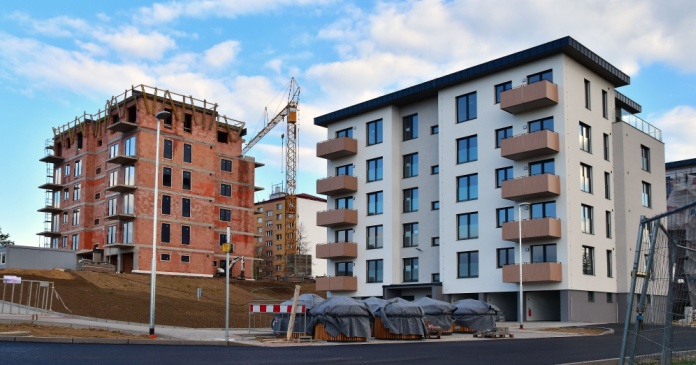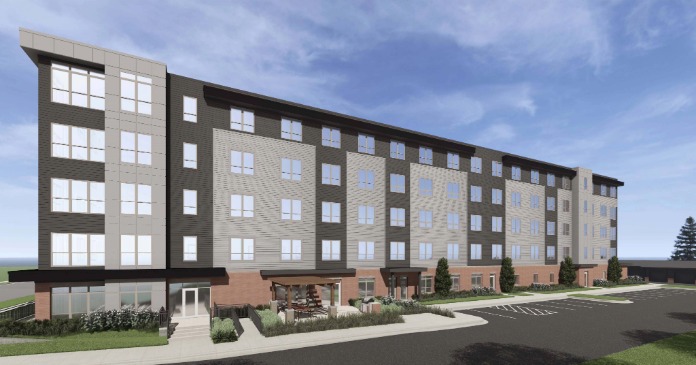Rep. Nydia Velazquez (D-NY) attached an amendment that would allow the federal government to prematurely force apartment properties into bankruptcy and then sell them at a lower price to an entity that agrees to convert them to affordable housing. Sen. Charles Schumer (D-NY) sponsored a comparable amendment, but withdrew it on procedural grounds.
Velazquez’s amendment directs HUD and the Treasury Department to work together to create a loan modification program for “at risk” multifamily properties. The bill does not target any specific level of mortgage distress, property condition or occupancy level that would justify government intervention. Instead, it says federal action would be allowed when an apartment is at risk of disinvestment or default or is in foreclosure already.
Properties could be subject to government intervention, including but not limited to: restructuring the existing mortgage through interest rate or principal reductions or other mortgage modifications; transferring of the property through foreclosure short-sale or deed-in- lieu of foreclosure; or a combination of actions to restructure the debt and ownership transfer.
In addition to Velazquez’s ill-advised forced foreclosure amendment, Rep. Bob Filner (D-CA) attached a separate amendment that would require apartment owners to notify current or prospective renters whenever a property is in default or foreclosure. Importantly, the amendment does not limit this requirement to monetary defaults, and thus would include non-monetary defaults, which are often quickly remedied.
This back-door effort to convert market-rate apartments into affordable housing would place financing of all multifamily properties at much greater risk by enabling the federal government to swoop in and foreclose on a property in the absence of any clearly defined guidelines. Such a draconian measure goes far beyond the controversial mortgage cram down legislation and could create such uncertainty among multifamily lenders that no loans would be made.
Moreover, this kind of federal intervention circumvents the normal processes owners and lenders undertake to resolve financing issues and address property concerns. To the extent that government action is needed to help manage, restructure or liquidate troubled assets, those actions should be undertaken via new commercial real estate financing programs.
By failing to distinguish between single-family foreclosures, which are almost always a result of insufficient financial resources, and multifamily foreclosures, which are often temporary and for non- monetary issues, such as the failure to properly record a new insurance policy, this amendment will unduly alarm apartment residents.
This alarm is not only unfortunate, but unnecessary. Unlike renters of single-family houses and condos, apartment renters are already protected by state laws which ensure an orderly transfer of ownership.
When a 5+ unit property goes into foreclosure, renters are not evicted as state law requires the new owner to honor existing leases. Beyond its negative impact on the residents, however, the Filner amendment could actually trigger a foreclosure or create financial stress on a property. Foreclosure notifications could reasonably discourage residents from renewing their leases and prospective residents from signing a lease.
Some form of renter protection may indeed be needed for the glut of single-family houses and condos currently being rented out. But extending those protections to the nation’s more than 600,000 apartment properties (defined as properties with 5+ units) will not help renters. Instead, it will needlessly alarm them and could lead to a self-fulfilling prophecy of pushing an otherwise healthy property into bankruptcy.
NMHC has made significant progress in turning back efforts to facilitate the government takeover of distressed multifamily properties by receiving assurances from House Financial Services Committee Chairman Barney Frank (D-MA) that he has no intention to allow the government to seize any apartment property.
Velazquez’s amendment would have allowed the government to prematurely force apartment properties into bankruptcy and then sell them at a lower price to an entity that agrees to convert them to affordable housing.
After extensive dialogue between NMHC and the offices of representatives Velazquez and Frank, lawmakers revealed a revised plan as part of their “TARP for Main Street” bill (H.R. 3068). Among other things, the bill would transfer $2 billion in dividends from banks that received TARP funds to the U.S. Department of Housing and Urban Development (HUD) to stabilize apartments that are in default or foreclosure or recently foreclosed.
The program would provide loans, advances and insurance to reduce and restructure the current financing, fund operating reserves and underwrite rehabilitation activities.
Importantly, while the program would also facilitate the transfer of the asset to a new owner, thanks to NMHC’s strong opposition to the previous amendments, the new bill requires the consent of the owner before such a transfer is made.
On July 9, Frank Apeseche, CEO of Berkshire Property Advisors, testified before Congress on behalf of NMHC regarding H.R. 3068. NMHC proffered testimony, as well as several recommendations to improve the proposed program, emphasizing the importance of carefully targeting the legislation to avoid further distress on the capital markets and waste of taxpayer dollars.
Government assistance program should not compete with private sector equity investors, but should attract investment capital to areas currently not served by private investors.
The apartment industry does not, under any circumstances, support the transfer or taking of a property without the consent of both the property owner and lender. NMHC asked Congress to define exactly what constitutes a mortgage default that would trigger government assistance and what precisely is an “at-risk” property.
Following the hearing, Frank assured NMHC that he wanted the committee staff to work with the organization on the points raised in testimony.
Frank opened the hearing saying that the root of the current housing crisis is the imbalance in federal housing policy that caused support for rental housing to decline and over-emphasized home-ownership.
Providing funding to stabilize troubled multifamily properties would help address that imbalance.
The measure remains controversial, however, as Republicans have argued that dividends from the TARP program should be used to pay down the deficit and that recycling them to pay for new programs violates the appropriations process established in the Constitution.
Author: NMHC’s written testimony is available at www.nmhc.org/goto/5288. To contact congress and weigh in on the issue yourself, call 202-224-3121 and ask for the office of any of the representatives mentioned in this story.
















